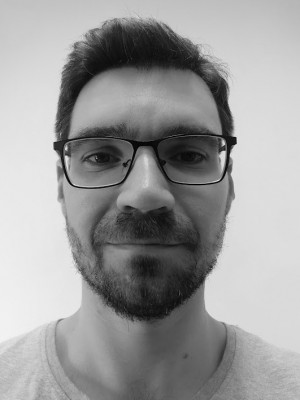abstract
The anion-binding and transport properties of an extensive library of thiophene-based molecules are reported. Seventeen bis-urea positional isomers, with different binding conformations and lipophilicities, have been synthesized by appending alpha- or beta-thiophene or alpha-, beta-, or gamma-benzo[b]thiophene moieties to an ortho-phenylenediamine central core, yielding six subsets of positional isomers. Through H-1 NMR, X-ray crystallography, molecular modelling, and anion efflux studies, it is demonstrated that the most active transporters adopt a pre-organized binding conformation capable of promoting the recognition of chloride, using urea and C-H binding groups in a cooperative fashion. Additional large unilamellar vesicle-based assays, carried out under electroneutral and electrogenic conditions, together with N-methyl-d-glucamine chloride assays, have indicated that anion efflux occurs mainly through an H+/Cl- symport mechanism. On the other hand, the most efficient anion transporter displays cytotoxicity against tumor cell lines, while having no effects on a cystic fibrosis cell line.
keywords
CELL; PRODIGIOSIN; AUTOPHAGY; INSIGHTS
subject category
Chemistry
authors
Vieira, P; Miranda, MQ; Marques, I; Carvalho, S; Chen, LJ; Howe, ENW; Zhen, C; Leung, CY; Spooner, MJ; Morgado, B; Silva, OABDE; Moiteiro, C; Gale, PA; Felix, V
our authors
Projects
acknowledgements
The CFBE cell line was kindly provided by Prof. M. D. Amaral (BioISI-Biosystems & Integrative Sciences Institute, Department of Chemistry and Biochemistry, Faculty of Sciences, University of Lisbon). This work was supported by the projects PTDC/QEQ-SUP/4283/2014, UID/MULTI/00612/2019, and CICE-CO-Aveiro Institute of Materials (UID/CTM/50011/2019), financed by National Funds through the FCT/MEC and co-financed by QREN-FEDER through COMPETE under the PT2020 Partnership Agreement. M.M. is thankful for Ph.D. grant PD/BD/142933/2018 from FCT. I.M. is grateful for a postdoctoral grant (BPD/UI98/6065/2018) under project pAGE (Centro-01-0145-FEDER-000003), co-funded by Centro 2020 programme, Portugal 2020, European Union, through the European Regional Development Fund. P.A.G. thanks the ARC (DP180100612) and the University of Sydney for funding.



